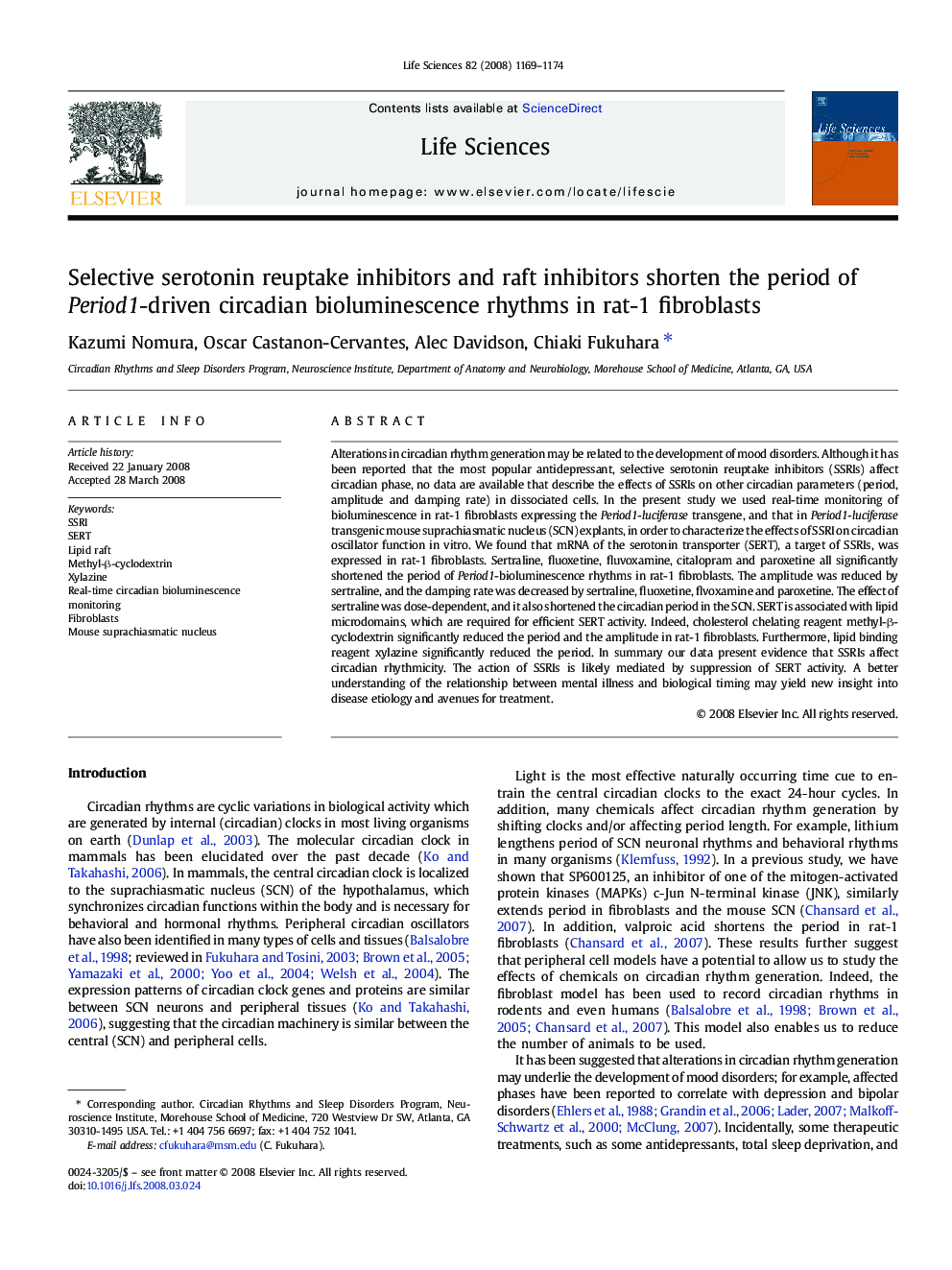| کد مقاله | کد نشریه | سال انتشار | مقاله انگلیسی | نسخه تمام متن |
|---|---|---|---|---|
| 2553674 | 1560751 | 2008 | 6 صفحه PDF | دانلود رایگان |
عنوان انگلیسی مقاله ISI
Selective serotonin reuptake inhibitors and raft inhibitors shorten the period of Period1-driven circadian bioluminescence rhythms in rat-1 fibroblasts
دانلود مقاله + سفارش ترجمه
دانلود مقاله ISI انگلیسی
رایگان برای ایرانیان
کلمات کلیدی
موضوعات مرتبط
علوم پزشکی و سلامت
پزشکی و دندانپزشکی
کاردیولوژی و پزشکی قلب و عروق
پیش نمایش صفحه اول مقاله

چکیده انگلیسی
Alterations in circadian rhythm generation may be related to the development of mood disorders. Although it has been reported that the most popular antidepressant, selective serotonin reuptake inhibitors (SSRIs) affect circadian phase, no data are available that describe the effects of SSRIs on other circadian parameters (period, amplitude and damping rate) in dissociated cells. In the present study we used real-time monitoring of bioluminescence in rat-1 fibroblasts expressing the Period1-luciferase transgene, and that in Period1-luciferase transgenic mouse suprachiasmatic nucleus (SCN) explants, in order to characterize the effects of SSRI on circadian oscillator function in vitro. We found that mRNA of the serotonin transporter (SERT), a target of SSRIs, was expressed in rat-1 fibroblasts. Sertraline, fluoxetine, fluvoxamine, citalopram and paroxetine all significantly shortened the period of Period1-bioluminescence rhythms in rat-1 fibroblasts. The amplitude was reduced by sertraline, and the damping rate was decreased by sertraline, fluoxetine, flvoxamine and paroxetine. The effect of sertraline was dose-dependent, and it also shortened the circadian period in the SCN. SERT is associated with lipid microdomains, which are required for efficient SERT activity. Indeed, cholesterol chelating reagent methyl-β-cyclodextrin significantly reduced the period and the amplitude in rat-1 fibroblasts. Furthermore, lipid binding reagent xylazine significantly reduced the period. In summary our data present evidence that SSRIs affect circadian rhythmicity. The action of SSRIs is likely mediated by suppression of SERT activity. A better understanding of the relationship between mental illness and biological timing may yield new insight into disease etiology and avenues for treatment.
ناشر
Database: Elsevier - ScienceDirect (ساینس دایرکت)
Journal: Life Sciences - Volume 82, Issues 23â24, 6 June 2008, Pages 1169-1174
Journal: Life Sciences - Volume 82, Issues 23â24, 6 June 2008, Pages 1169-1174
نویسندگان
Kazumi Nomura, Oscar Castanon-Cervantes, Alec Davidson, Chiaki Fukuhara,